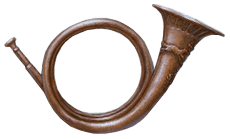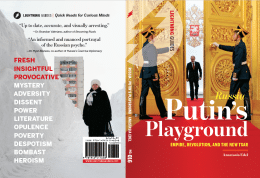 Today I welcome my dear friend and author, Anastasia Edel to World Reads, a blog that features interviews with authors who’ve written about a subject/book set outside of the United States for children and young adults. And while Anastasia’s new book, PUTIN’S PLAYGROUND is not specific to children and young adult readers, the language is certainly accessible to all readers young and old. In fact, I’d recommend PUTIN’S PLAYGROUND to anyone curious about or traveling to Russia. And it is definitely a must-read for those who need to get up to speed on what’s happening in Russia who don’t have time to invest reading countless history, political, and cultural books. Edel does all of the hard work for us and presents relevant content for her readers with clarity and vision.
Today I welcome my dear friend and author, Anastasia Edel to World Reads, a blog that features interviews with authors who’ve written about a subject/book set outside of the United States for children and young adults. And while Anastasia’s new book, PUTIN’S PLAYGROUND is not specific to children and young adult readers, the language is certainly accessible to all readers young and old. In fact, I’d recommend PUTIN’S PLAYGROUND to anyone curious about or traveling to Russia. And it is definitely a must-read for those who need to get up to speed on what’s happening in Russia who don’t have time to invest reading countless history, political, and cultural books. Edel does all of the hard work for us and presents relevant content for her readers with clarity and vision.
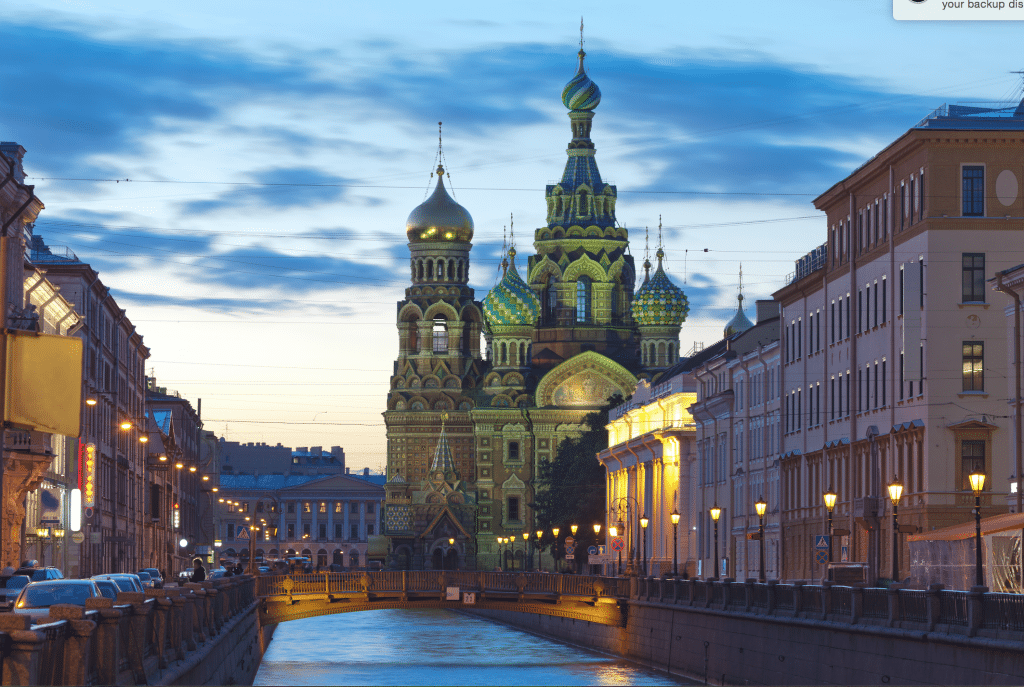 PUTIN’S PLAYGROUND is a political, cultural and historical analysis of modern Russia. Written for readers with general interest in Russia and world affairs, the book explores the tumultuous relationship between the Russian state and its people, and traces Russia’s history from its inception through Putin’s controversial rule. In a series of short, punchy essays, Putin’s Playground examines various facets of Russian life and culture―from literature to oligarchs including Peter the Great to punk protesters Pussy Riot.
PUTIN’S PLAYGROUND is a political, cultural and historical analysis of modern Russia. Written for readers with general interest in Russia and world affairs, the book explores the tumultuous relationship between the Russian state and its people, and traces Russia’s history from its inception through Putin’s controversial rule. In a series of short, punchy essays, Putin’s Playground examines various facets of Russian life and culture―from literature to oligarchs including Peter the Great to punk protesters Pussy Riot.
PUTIN’S PLAYGROUND has already earned wonderful reviews:
“Anastasia Edel provides a beautifully written and richly illustrated introduction to Russian cultural and political history. Russia: Putin’s Playground is equally lively and insightful, a guide to Russia’s future as much as its past, a perfect primer to a country too often misunderstood in America.” ― Anthony Marra, New York Times bestselling author of The Tsar of Love and Techno and A Constellation of Vital Phenomena
This book is perfect for anyone with a growing concern about Russia, but without the knowledge to make informed opinions about the interests of the Russian state and the foreign policy decisions of its leader, Vladimir Putin. This book rightly explains the Russian foreign policy psyche via its history and culture, and explains with nuance as to why Russia and the West, especially the United States, have disagreements on many geopolitical issues.―Dr. Ryan Maness, PhD, Visiting Fellow of Security and Resilience Studies in the Department of Political Science at Northeastern University and co-author of Russia’s Coercive Diplomacy
Excellent introduction to political and historical Russia. Up to date, accurate, and visually arresting. This would be my recommendation for anyone wanting to catch up on and understand modern Russia. ―Dr. Brandon Valeriano, PhD, Senior Lecturer in Political Science and Global Security at the University of Glasgow and co-author of Russia’s Coercive Diplomacy
Smart, balanced, concise, Putin’s Playground includes a history of Russia and an overview of its cultural and intellectual history. Plus, Putin! If you or someone you know has any interest in Russia, get this book! ―Dan Lyons, former editor at Newsweek and Forbes, co-producer of HBO’s Silicon Valley, and author of Disrupted: My Misadventure in the Start-up Bubble.
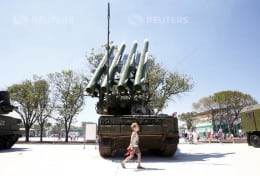
A boy walks past the Russian Buk-1M missile system at the Air defense battle masters competition as part of the International Army Games 2015 in the port town of Yeysk, Russia, August 9, 2015. REUTERS/Maxim Zmeyev
How are you connected to the subject matter of PUTIN’S PLAYGROUND?
I grew up in a small town in the south of Russia. Putin’s Playground used to be my playground also.
Why did you write PUTIN’S PLAYGROUND?”
I knew about Callisto Media’s “Lightning Guides” series and found the approach—short beautiful books that connect curious readers to big ideas—really intriguing. When they offered me to write a book about Russia, I saw it as an opportunity to create a concise, honest, and educating portrait of the country I was born in. There’re a lot of people who genuinely want to understand Russia, but not all of them have the time to read specialized historical and political literature. The reality of media headlines, on the other hand, is often clichéd and distorted. The idea that I could create something as informed and accurate as academic literature but also accessible, fresh and fun to read, genuinely inspired me. As I wrote it, I often thought of my children, who were born in America: I wanted them to understand the essential facts about Russia, and about what being Russian means. Lastly, as someone who hopes for a better Russia, I wanted to bring to the public eye the names of those Russians who resist the oppression of the state, despite the threat to their lives.
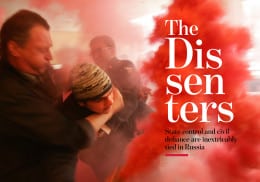 What was the biggest challenge you had writing PUTIN’S PLAYGROUND? How did you overcome it?
What was the biggest challenge you had writing PUTIN’S PLAYGROUND? How did you overcome it?
Because Putin’s Playground is part of the series, it had to fit into a certain format. The biggest challenge for me was the word limit. How do you fit everything you know about a country—and if you grew up in it, studied its history, its literature, its language, you do know a lot—into twenty thousand words? What do you omit and what do you take out? What helped me tremendously was that, on our family vacation, my husband (who happens to be a trained historian) came up with an idea of viewing Russia as a stage with just three actors: the State, the People, and the Dissenters. It is a very elegant framework, if you think of it: everyone who inhabits Russia fits into one of those three categories. Applying that framework allowed me to avoid the linear, “chronicling” approach, which would have made for a long and tedious read, and concentrate on the critical forces at play in the Russian society. As for the sentences, only the essential words went in. When you have stringent word limits, you are forced to say only what truly matters.
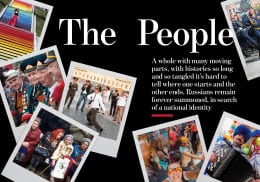 Which section of PUTIN’S PLAYGROUND was the easiest to write and why?
Which section of PUTIN’S PLAYGROUND was the easiest to write and why?
“The Russian People.” Because this is where I personally fit in. Being outside of the daily Russian context (I spent roughly the same amount of time living in Russia and in the West) lent a perspective to my observations, allowing for a more objective self-portrait, or so I hope. Besides, Russian people are fun to write about—I mean, which other nation has fights over categorical imperative on bus stations? Responds to the giant meteorite explosion above their heads with a melancholic shrug and a short curse word? Fishes with dynamite, uses arms for windshield wipers, and chases a bottle of vodka with just half a pickle?
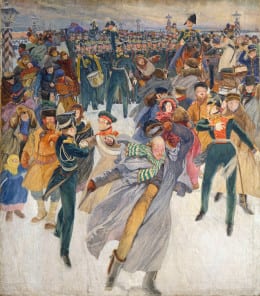
‘The Decembrist Revolt at the Senate Square on December 14, 1825’, late 19th century. Artist: Dmitry Kardovsky
What do you want readers to take away or learn from your book?
Russia is a place governed by highly idiosyncratic principles, many of which run contrary to the Western value canon. Specifically, in Russia individual freedom is always secondary to the interests of the state. In that arrangement, no sacrifice is too big, and no disagreement too small.
What was the most surprising thing you learned while writing or publishing PUTIN’S PLAYGROUND?
The day after signing the contract with the publisher, the ambitiousness of my undertaking had at last dawned on me. I looked at my outline, then at the books in my bookcase, checked local library resources, googled haphazardly—and sunk into deep despair. It appeared to me, with all clarity, that I was trying to embrace the un-embracable (a lovely Russian expression). When I could take it no longer, I did what every normal person in my situation would do: I went to a bookstore and asked the store clerk to show me all the books they have on Russia. That, I believed at the moment, would save me.
But on the corner shelf labeled “History,” I found books on American Revolution, Civil Rights movement, fall of Rome, history of Protestantism and, for some reason, novels of Hilary Mantel. No mention of Russia.
I was seriously considering calling it quits when I noticed a bunch of small, illustrated volumes: “China.” “Cuba.” “Vietnam.” I prayed for the next to be “Russia.” My prayers were not granted. Thinking of the words I would use to tell my publisher why I couldn’t do it, I suddenly noticed a small lightning symbol on the spines of the small volumes that had caught my attention. It was the same as on the publishing contract on my desk. The reason “Russia” wasn’t on the shelf, was because it hadn’t been written yet. I was writing that book for Callisto’s “Lightning Guides.” It was a very strange, almost transcendent experience, after which I stopped agonizing, went home and started writing. “If you call yourself a mushroom,” goes a Russian saying, “get into the basket.”
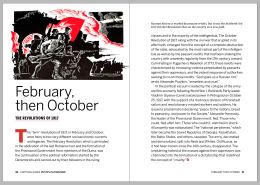 Do you have any predictions for Russia and its future?
Do you have any predictions for Russia and its future?
When a country is governed by individuals rather than by institutions, predictions are hard to make. Because individuals are unpredictable. As a general rule, given the high concentration of power in Russia, there’s always a chance that small changes at the top will cause asymmetrically large shifts in the country’s course. Right now Russia has entered a period of reaction, and no one knows how long it would last. During this period, it is essential for the West not to leave Russia (and those who stand up to the state’s oppression) to their own devices. If, armed by its nuclear missiles, Russia will hurtle into the abyss, no one will benefit.
What kind of story can we expect next from you?
I recently finished a novel, “Past Perfect.” It is a novel of dislocation, desires and people’s quest for meaning. The novel is now looking for the right publisher. Meanwhile, I am working on a semi-autobiographic collection of short stories, “Intersections,” set between Russia and the West. A couple of those stories are forthcoming in literary magazines in the US.
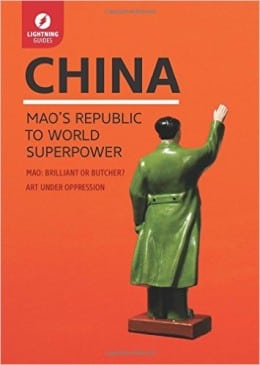
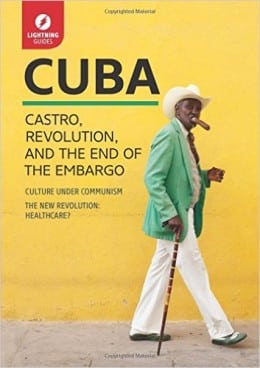
What else would you like us to know about you or PUTIN’S PLAYGROUND?
I never thought that I would write a political book. One of the consequences of exile, even if it’s voluntary, is silence, and I don’t mean the type connected to language proficiency. Rather, it’s a silence of a guest who doesn’t want to risk offending her host, be it by ignorance, or by applying an inappropriate cultural measurement.
Affaires russe are a different matter. Despite considering America my true home, Russia is the country that has shaped me, the country whose cultural fabric I carry in my bones. On things Russian, not only I can take a stand—I can also back it up; I just have deeper pockets of cultural references. In this respect, writing “Putin’s Playground” felt like breaking a long-standing covenant of silence. An unexpected gift.
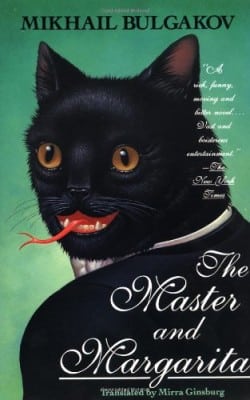 Can you remember the first book that made an impact on you? And why?
Can you remember the first book that made an impact on you? And why?
There’re so many… In the environment of late USSR, with two channel programs and limited outside entertainment opportunities, books have always been my primary companions. I read everything, adventure and science fiction, I read Chekhov, Tolstoy, I read Jack London and Emily Bronte. But perhaps the one book that captivated by imagination was Bulgakov’s “Master and Margarita,” which I read in sixth grade for the first time. It was so different from everything else. I grew up in a place where people went to church secretly, in fact where many churches were converted into warehouses. And “Master and Margarita” had Jeshua and the Devil, and Pontius Pilate, those intense discussions about good and evil, about immortality, betrayal, art, love… Reading Bulgakov’s book meant awakening to life’s astounding complexity, to the passions and struggles hitherto unknown, to the world outside the known universe. That’s what great books do.
What advice can you give to aspiring writers?
Don’t be afraid.
Where can readers buy your book? AMAZON, BARNES AND NOBLE, and Indie bound .
What other books would you recommend to readers interested in Russia?
Below are the few of my recent favorites:
Svetlana Alexievich. Voices from Chernobyl
Victor Pelevin (Blue Lantern, Hall of The Singing Caryatids, SNUFF)
Peter Pomerantzev. Nothing Is True and Everything Is Possible: The Surreal Heart of the New Russia Paperback
Rihard Pipes “A Concise History of the Russian Revolution”
Varlaam Shalamov “Kolyma Tales”
Alexander Solzhenitzin “One Day of Ivan Denisovich”
Ilya Ilf and Yevgeny Petrov “Twelve Chairs”
Fyodor Dostoyevsky. Brothers Karamazov.
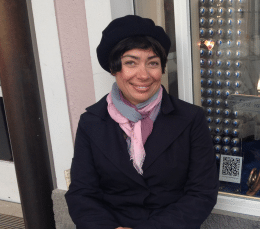 PUTIN’S PLAYGROUND is THE perfect read if you want to understand what’s going on in Russia now and how it got to this point. It is also a MUST READ if you are traveling to Russia anytime soon. It’s packed with lots of relevant information in fun, evocative language. I spent many of my working years in Russia when all of the changes first started during the Gorbachev era in the late 1980s and wish I had had PUTIN’S PLAYGROUND along for that journey. So if you or someone you know fancies anything Russian or is traveling to Russia, PUTIN’S PLAYGROUND is an excellent, compact, and well-written resource one could easily read in one sitting or on a flight to Russia.
PUTIN’S PLAYGROUND is THE perfect read if you want to understand what’s going on in Russia now and how it got to this point. It is also a MUST READ if you are traveling to Russia anytime soon. It’s packed with lots of relevant information in fun, evocative language. I spent many of my working years in Russia when all of the changes first started during the Gorbachev era in the late 1980s and wish I had had PUTIN’S PLAYGROUND along for that journey. So if you or someone you know fancies anything Russian or is traveling to Russia, PUTIN’S PLAYGROUND is an excellent, compact, and well-written resource one could easily read in one sitting or on a flight to Russia.
To contact or learn more about Anastasia Edel, please check out her website.
Thank you Anastasia Edel for joining us at World Reads! I see a bright future for you and look forwarding to reading your fictional work.


